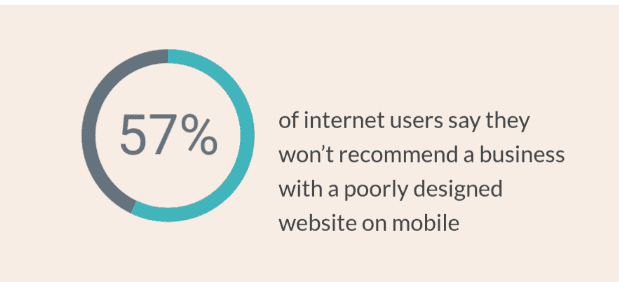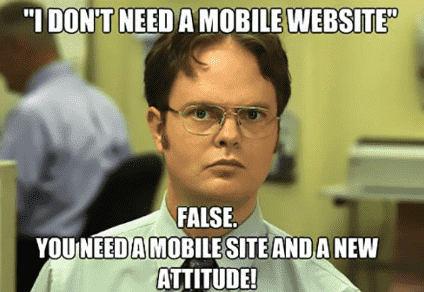If “web app vs mobile app” – that is the question, then this article has the answer you need ! Read ahead for more !
The world is mobile! Even Google admits ranking your website higher if it’s mobile optimized. Companies are becoming increasingly aware of developing a mobile strategy for their business. Before you decide to follow this trend, ask yourself what you need – a mobile app or a mobile website or both? Web app vs Mobile app: What is better? Let’s find out.
In 2018, 52.2% of internet traffic was mobile . What this means is 52.2% of all website traffic worldwide can be attributed to mobile. Recent research also shows that 90% of user’s mobile time is spent on apps. Mobile presence is the need of the hour.
And any business that’s aiming at mobile presence has a fundamental question – Mobile website (Web app) or Mobile app? So, before we start discussing mobile app vs mobile website, let’s run through what these terms stand for.
Get a Complimentary App Consultation
What’s the difference between app and website?
A web app is simply a website that took the mobile-first approach and is designed to be viewed and interacted on a smartphone. So, web pages optimized for mobiles are mobile websites. These pages can scale up and down according to the configuration of any sized devices. Few typical mobile app features like location-based mapping can also be accessed on some websites.
Mobile apps, on the other hand, needs to be downloaded and installed via an app store and have access to your system resources like GPS, notifications, camera, etc.
So, web apps function like mobile apps, but from the comfort of the phone’s browser. Certain differences are that web apps need an active internet connection to run, whereas mobile apps can work offline. For example, if you are trying to access an internet speed check web app, without proper internet connectivity you will not be able to open the web app, period. However, if there is a mobile application for the same web app, you might be able to open it. However, in this specific scenario you might be prompted to check your intended connectivity to get the intended data. Mobile app needs to be manually updated and web apps can update themselves. We will elaborate on the differences between a web app and a mobile app in the next few sections.
Read more: Website versus Web Application – How are they different?
Being a software development company, let me first point out here, whether you develop a mobile app or not is something we will address a little later in this article, but, a mobile-first strategy is mandatory. In simple layman’s term – You absolutely need to have a website that is configured for mobile.
There are a countable number of factors that need to be accounted to help you align a mobile strategy that best suits your business objectives and help answer the question – Web app or mobile app?
Web app – Why is it so critical for businesses?
Mobile internet usage has surpassed desktop usage since 2016 and Mobile traffic as a share of total global online traffic in 2017 was 52.64%. So, this gives you an idea of how important a web app is. Companies must design their application in such a way that the web can fit the screens of different devices automatically displaying the content in a way that is compact and comfortable to browse.
Do you know – Nearly 8 in 10 customers would stop engaging with content that doesn’t display well on their device.

Mobile-first shifted the paradigm of website user experience and improved user experience. Some pros and cons of web apps are :
Pros of web apps
- No need to download the web app. All you need is an active internet connection.
- Web apps are easier to maintain as they have one common codebase across all mobile platforms.
- There is no concept of approval from the app store.
- Unlike mobile apps, web apps will update themselves.
- Cost-Effective
Cons of web apps
- They cannot function offline.
- They have a very limited scope of accessing device features.
- Testing is complex for web apps as there are a lot of browsers that they need to be tested for.
- As they need no permission from the app store, there is no specific database for these web apps.
There is also another reason to consider building a web app. Until and unless you are a brand name in your niche, it is very likely that users will first land on your website rather than looking for a mobile app and downloading it. If you want to develop an interactive learning application or a social media application, thinking of a mobile app is an option, although it rarely makes sense to build these apps without already having a mobile website in place.
Let’s move to mobile apps now.
According to Statista , In 2017, consumers downloaded 178.1 billion mobile apps to their connected devices. In 2022, this figure is projected to grow to 258.2 billion app downloads.
As of 2019, over 2 million apps are available for download on the Google Play store, while 1.83 million apps are available on the Apple App Store. Why are mobile apps so popular and why every business wants to build them?
Branding
A mobile app means branding. Apps are an extension of your brand and what value you hold as a company. Gradually, a mobile app enters into the personal space of your users and is always present on their device and accessible with a single click, hence allowing the brand to carve its niche and can build value for itself.
Tailored communication
Mobile apps offer tailored content by allowing users to set preferences based on their interests, location, behaviour, etc. and customize the set preferences accordingly, serving target advertisement to the users. Customized recommendations and updates, location-based promotions or deals, etc comes handy with the help of data personalization.
Leverage Device Capabilities
A mobile app has access to the device’s inbuilt features (camera, location, etc) and this helps to enhance the customer experience. Let’s for example, take push notifications. These can be sent any time and users don't have to be surfing the mobile app or using their devices to receive them. They can show the latest sports scores, download coupon, or let a user know about an event, such as a flash sale.
Offline access
Another crucial advantage is the opportunity to use them offline. As apps are installed on a mobile device, they can keep providing access to content and features even without an internet connection.

Pros of mobile apps :
- Once downloaded, they are instantly available and you don’t need to open up a browser time and time again to access them.
- Mobile apps work offline
Know Which App Fits Your Needs






